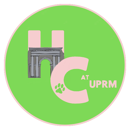By now, most of you should know about the disastrous results Puerto Rico received in an international academic quality test called PISA. According to their website, PISA (or the Programme for International Scholastic Assessment) is a “triennial international survey which aims to evaluate education systems worldwide by testing the skills and knowledge of 15-year-old students.”
The scores that the Puerto Rico Department of Education received last week are actually from a survey made in 2012, in which 1,668 students from fifty-six private and public schools answered questions about math, science and reading comprehension. The results place Puerto Rico in 58th place in Math, 55th place in science, and 53rd place in reading comprehension out of a total of 65 countries.
However, these results don’t come as a shock to most people. In an interview for Univisión, Ponce mayor -María “Mayita” Meléndez- stated that “this isn’t a new problem—this has been going on for years,” and that the Department of Education is too bureaucratic and there is too much politics involved in educational reform. On the other hand Karilyn Bonilla, mayor of Salinas, added that the Department of Education must restructure itself and allow for locally or regionally-based decision-making and funding for school districts, rather than have all the power centralized. The lack of better fund distribution has led to the closing of Special Ed schools and delays in the hiring process for new teachers.
Ironically, the statements made by Mayor Bonilla reflect some of the same desires pro- strike University of Puerto Rico’s students had in 2010. Since funding had become scarce in all of the UPR campuses and the government, led at the time by Governor Luis Fortuño, proposed an action plan to cut funding and hike tuition costs, UPR students decided to take action and organized the now infamous 2010-2011 strikes. One of the reasons professors and students agreed that funding was scarce was because on the centralization of funding for the University at the hands of the Central Administration, recently established as of then.
Meanwhile, the higher-ups at the Department of Education insist that these results are no cause for alarm. As interviewed by El Nuevo Día, Harry Valentín González, the sub-secretary of the Department of Education said that the fact that we have scored 10 points below the international average isn’t a bad thing, considering it is the first time this test has been done in Puerto Rico.
Unsurprisingly, these deficiencies have bled over to college-level students. Puerto Rico’s overall College Board scores have gone down since the mid-1980’s, according to El Nuevo Día. Out of a maximum of 800 points for the scholastic aptitude and academic achievement tests respectively, Puerto Rican students averaged a score of 448 in 2014, compared to 474 in 1985. Similar dip in scores in the English verbal and reading comprehension tests have been recorded, as well as for the Math tests.
Some UPRM students have addressed their concerns over these reports and fear for the future of the Department of Education and the island’s future. Ana Portnoy, a junior English Literature major, believes that “[the Department of Education] should use them as an incentive to reevaluate the island’s education system.”
The question at this point is: what changes can be made to fix this broken system? Are the problems purely financial and administrative, or do they go much deeper and into the curriculum?
Resources:
http://www.elnuevodia.com/sacamalasnotaslaescuelapublica-1638700.html

